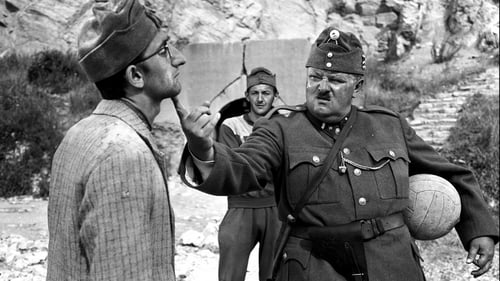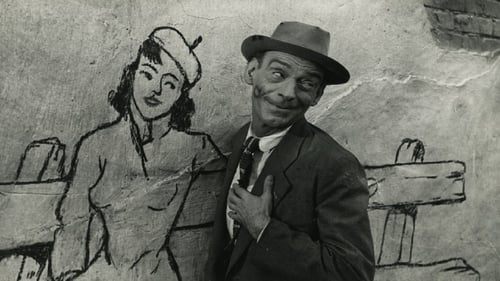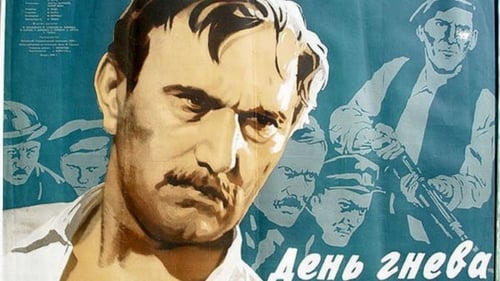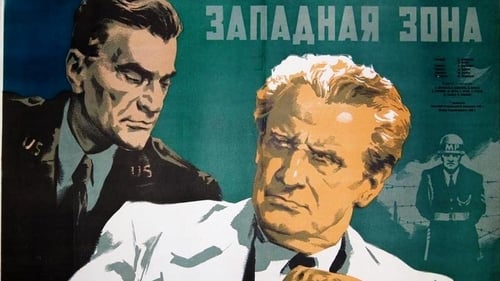Gyula Benkő
出生 : 1918-08-21, Budapest, Austria-Hungary [now Hungary]
死亡 : 1997-06-30

1958. In the cell of the condemned, seven men await the signs of an approaching execution. All of them recall their pasts and envision their wish-dreams.

Krabek

Divided into two different halves separated by mood and subject matter, this is an uneven drama about the experience of one Hungarian Jew before and during the fascist takeover of Budapest. The hero Pali (Zoltan Bezeredi) arrives back in Budapest from the U.S. and meanders among the intellectual and social elite before he leaves for a brief stay in England. There he has an even briefer affair with a happy-go-lucky aspiring actress (Anna Kubik), and after a few other encounters with movie mavens, he heads back to Budapest -- quite inexplicably. The rest of the film deteriorates into a dark realm of hatred and violence.

Kaunitz
A Hungarian film about Emperor Joseph II

Omikron
A story about Lala, an eight years old magician.

The romantic story takes place in the time of Napoleon in Hungary, near Fertő-lake. Count Vavel hides here the French heiress from the revolution and Napoleon.

Ughy báró
1918. Fábián Bálint is forced to kill humans on the Italian front. At home his sons drown the priest, the lover of their mother, in the river Kraszna. Mrs. Fábián turns insane. Following his arrival home Bálint becomes the liveried coachman of the baron.

Miklós (voice)
Barbara is a forty-year-old woman of Polish origin living in Budapest. She is a biologist, a wife and a mother. The death of her woman friend opens her eyes to the fact that she is lonely, unable to find her place.

General Calatón
The story takes place in an unnamed Latin Country.

A World War II-style "war game" setting the wealthy customers against skilled mercenaries goes awry when the simulated war gets too real.

Homoródy képviselõ úr
A brothel in a small Hungarian town becomes the home of a medical student after his favorite working girls find out he's out of rent money. Trouble brews as they learn his mother is coming for a visit and they must transform the house.

Benkö
The loving couple of this grotesque parable parody of the Kádár-regime, Mária and István row to an uninhabited, idyllic island. Soon crazy tent-pitchers swarm to the island, led by an official representative of the regime.

Vogt, 'orvos' díszlettervezõ (as Benkõ Gyula)
Two arts students, András and Viktor who are writing their thesis on detective stories, make up a story and keep nagging the famous film-director, who just came back from Hollywood, until he undertakes the job. At night they work on the film, in which two youths kill a director returning from the US. In the morning the director is found dead - a knife in his back.

The members of a rifle-corps unit gather in a village by the western border

Babocsai Gáspár
In 1585 the Turks and Vallons are looting the Látrány region.

Mrs. Holló reports the case of three missing persons to the police. During the investigations, the captain realises that there is nothing to deter Mrs. Holló from her trying to overcome loneliness.

Kerekes (Antal Pager) believes he is wanted by the police when his friends play a practical joke in this unusual comedy drama. He returns to his hometown where he was accused of turning a Jewish druggist and the druggist's wife over to the Nazis. With his friends following him, Kerekes tries to find out what became of the couple after they were deported. After being subjected to a mock trial by his friends -- and found guilty -- Kerekes becomes despondent and attempts to kill himself. Flashbacks and hallucinations are employed to tell this story that occurs during the Eichmann trial. Both the film and Antal Pager gained some unwanted publicity when a Variety article from April 23rd, 1967 accused Pager of being a Nazi collaborator for his role in an anti-Semitic film during World War II.

Kászoni alezredes
Andras Kovacs' film, considered one of the most important Hungarian films of the 1960s, centers around four men who await trial for their involvement in the massacre of several thousand Jewish and Serbian people of Novi Sad in 1942. Each denies any responsibility, claiming that they were only following orders. The film is significant for its willingness to address the subject of Hungary's role in WWII, which was taboo at the time of the its release.

Strasznov Ignác

Fegyverneky
On the novel by Mór Jókai. The first half of the XVIII century. Several decades of life of a noble family Karpati.

Egy rokon
Nelli, the icy, introverted farm girl, needs to find a husband following her father's death. She accepts the attentions of the noisy Takaró Sanyi, although she is more attracted to his silent and modest younger brother.

Thomas Percy
Lilian, daughter of an English millionaire threatens her father that she will marry the first shady character turning up around her and will sing in bars just because her father wants her to marry someone whom she does not love.

Hanisch
In 1963 in Tihany, somebody addresses the writer Gábor Náday. He is reminded of a night drive in 1944 that saved his life. Painful memories start coming to Náday.

A priest who has been set free from prison recently joins a spy organization.

The grey hero of grey workdays, the divorced cashier of a cinema who is always willing to sacrifice herself for others, Etelka, is awarded a two-week-holiday at Lake Balaton. Following the advice of her female friend, she tries to live life at full speed.

Sztepan
To celebrate Hitler's birthday, a soccer match is organized between the Germans and prisoners of war.

Kapusi, tanár
1920 in a mining town in the country-side. The team of children led by Ferkó Boda fish guns and a flag of Red soldiers out of the local lake.

Noster
Daddy Kárász, the stakhanovist worker, complains in a television interview about the fact that his family, consisting of many members, cannot get a home on their own. Kéri, the chairman of the local authority, promises to help him on the condition that if he does not, they may move in to his villa at elegant Pasarét. Nothing happens, therefore the Kárász family takes Kéri by his word. From this time on, tumultuous scenes and frequent quarrels take place in the villa between the two families.

philologist Zsámboki

Baron of Hátsze / Black mask
The old, sickly Demeter Lapussa is a tyrant in the family. He forces his granddaughter, the beautiful Henriette, to marry baron Hátszegi, although the girl loves the penniless Vámhidy Szilárd. The two lovers attempt to commit suicide, then are torn away from each other.

Frigyes Karikás
The spring of 1919. Karikás Frigyes reorganises brigade 39 at the Tisza. His most devoted soldiers are Korbély János and his followers, who remain faithful to the political commissioner under all circumstances.

Nyomozó
This easy-to-take Hungarian drama is also known as Two Wishes. The prinicipal characters are a pair of juvenile delinquents, who may still be redeemable. The sullen duo is befriended by a kindly police inspector, who takes it upon himself to straighten out the boys. What follows cannot be termed surprsingly or innovative, though it is immensely satisfying. Of interest is the fact that a Communist-bloc film would admit to a delinquency problem in the so-called Worker's Paradise. Ket Vallomas was the Hungarian entry in the 1957 Cannes Film Festival.

son of Pongay

János
On the Spring of 1945 the Jackson circus is heading towards the border with the clown Peti and Aida, the elephant. They have to play for the Hungarian Fascists, while Peti is hiding the Jew Annuska and Sanyika.

March 15, 1848; the revolution breaks out in the town of Pest. Yet at café Pilvax, in among he revolutionary youth, there is the informer of the imperial court as well. Hearing the news of the attack led by Jellasics, the inhabitants of the villages pour into the national army, and Hajdú Gyurka also escapes from his landlord. Petőfi is there at the camp of the revolutionaries, raising them to enthusiasm with his poetry.

Csontos
In the vocational school the professionally excellent Dani János works on his own invention in his leisure time, but he does not like learning. However, even his own father learns in the evenings, he will become a teacher.

Morvai
In May 1919 in a small rural town beside Salgótarján the local high society wants to get the power back with the leadership of dr. Máriáss, exploiting the outside attack launched against the Republic of Councils.

Ferenc Örvös

Budai örnagy
It deals with the alleged Western sabotage of Hungarian oil production.

Count János Párdányi Buttler
Különös házasság is a 1951 Hungarian drama film directed by Márton Keleti. It was entered into the 1951 Cannes Film Festival.

The only jacket owned by Rédey Lajos, a university student majoring in Italian language and literature, is pawned by his room-mate. The bracelet of Kitty, the daughter of general Gohrmann, which in the middle of a kiss during a lesson in Italian got accidentally unfastened, has been left in the pocket of the jacket. As a result of a still further incident, Rédey, - endeavouring to return the bracelet to Kitty - embarks upon getting the jacket back while wearing the Hungarian gala-suit owned by his landlady's elder brother. The station to which he finds his way while looking for the jacket is visited by the King of Italy, and he takes Lajos, dressed as he is in a Hungarian gala-suit, to be a Hungarian aristocrat, and Lajos must but receive His Majesty in Italian.

Avary, himself a hustler, is jealous of his beautiful wife. He eavesdrops to catch Vilma, his wife, having supper with a neighbour on the terrace of their manor-house. He is about to shoot at the woman, but it is him who gets shot to death.

After the war, Gábor Erőss, released from its captivity, returns home. Abandoned by his love, he finds his house ruined. Nikita, his neighbour, and the roaming Levite come to his assistance by offering him both their friendship and a draught animal.

Péter, a festő
In a small town in the countryside, the election of the president of the restaurant trade association is under way. The two rivals, Dénes Kövi, owner of the elegant Korona restaurant, and Antal Bálint, owner of the staid Makkhetes restaurant, are putting all their eggs in the basket for the title. Taking advantage of this situation, Pál Balázs, who has become the manager of his crippled painter friend, has a portrait commissioned with Dénes Kövi.

Sándor Móric

Béla

Egy komolytalan karmester
Dömötör, a headwaiter, and Rudi, his friend, a conductor, are dismissed. Later, they return as guests. Dömötör is seen sporting a false beard, now the spitting image of count Rod-Igor Su-Arezew, the world-famous lion-hunter.

Modern and exciting short from a series of Hungarian noir films. Rácz Vali, playing the protagonist, was famous and beloved for her propensity to sing sad songs and recite lyrical poetry. She also played in movies, but only before 1945, as the cultural and social climate she represented didn't fit in the program of the post-war regime.

Holben, egyetemista
When his new wife from a peasant background is not accepted by his colleagues, a University Professor resigns his post and returns home to his rural village. After receiving popular support, he is returned to his position by the Minister of Education.

Lenke, a schoolgirl in Budapest, is in love with László, a middle-aged widower, owner of the estate in the neighbourhood of her own country home. She secretly follows him in Budapest, and they finally meet.

Dr. Winnicke
The story takes place during the Third Reich, in the autumn of 1933, when the world's attention was focused on the Leipzig lawsuit. The main character is dr. Winnicke (played by Gyula Benkő); a young German doctor is commissioned by Count Hellwitz, an SA officer who was once a classmate, to “make” one of the participants in the lawsuit fit for Nazi purposes.




































